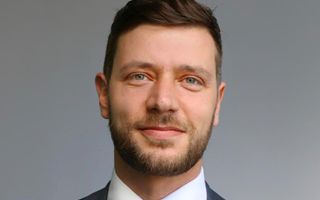(Finance) – The Growth of Family Offices in Italy shows no signs of slowing down, but to maintain the positive trend is now essential a qualitative leap in professional skills and in the support offered by the ecosystem of consultants. This is what emerges from the latest research presented by theObservatory promoted by the School of Management of the Milan Polytechnic, which photographs a sector that is expanding but which increasingly requires specialized figures and multidisciplinary skills to address the complex needs of entrepreneurial families.
As of December 31, 2023, the Observatory’s census counted 222 Family Offices active in Italy, including 113 Single Family Offices and 91 professional Multi-Family Offices, to which are added 18 banking-origin structures that offer similar services to multiple families. The turnover of Multi-Family Offices reached 150 million euros in 2022, employing over 500 professionals, with a 8% annual growth compared to 2017, both in terms of turnover and personnel employed. It is a growing market, which offers numerous employment opportunities, but which requires an improvement in the skills of those involved in the sector to face the challenges posed by the growing complexity of the activities managed.
“Family Offices are a structure of sophisticated and personalized wealth management to meet the needs of entrepreneurs and their families – explains Josip Kotlar, scientific director of the Report presented yesterday at the Polytechnic with a program enriched by the comparison between researchers, representatives of entrepreneurial families and professionals in the sector – and this implies numerous highly specialized skills, from investment management to wealth planning, from international tax consultancy to family governance, to philanthropy, as well as soft skills related to listening, empathy, leadership, but also to the understanding of psychological, family and intergenerational dynamics”. Too much for one person alone: it is needed a network of external professionals that provide services in partnership and outsourcing. Especially since, according to the data collected by the Observatory, three-quarters of the CEOs of Single Family Offices are members of the family itself, generally with a professional background in the management of the family business (therefore with skills that are not strictly relevant), while the external managers, who make up the remaining quarter, mostly come from private equity or finance.
“This Report aims two main objectives – continues Alfredo De Massis, co-scientific director and chair of the Scientific Advisory Board –. The first one is support the professionalization of Family Offices, providing ideas on how to outline specific profiles: given the multi-disciplinary nature of the activities, the Family Office professional cannot be just a professional ‘lent’ to the management of family assets. The second is that of grow the entire marketthat is, the ecosystem and network needed by Family Offices that are unable to acquire all the useful skills internally, improving the overall quality of consultants and services available in outsourcing. The ability to attract and retain high-level professionals is also crucial for long-term success, because globalization has intensified the ‘war for talent’. On the other hand, the digital technologies and algorithms are transforming the wealth management industry, offering new opportunities but also risking replacing, at least partially, some services”.
“The Observatory’s studies are based on rigorous methodologies – illustrates Luca Manelli, co-scientific director and lead researcher of the project – starting from the collection of data from primary and secondary sources, including the Orbis and AIDA databasestheir integration and analysis, dozens of interviews and some focus groups with Italian and European stakeholders (family advisors, entrepreneurs, family officers, wealth managers…) and events, which were followed by quantitative and qualitative analyses of the information to reach a deep understanding of the phenomena. The 2024 research is divided into four macro-studies correlated with each other: census of Italian Family Offices, the analysis of the skills needed by Single Family Offices, how their Boards of Directors are constituted and finally the questionnaire to Multi-Family Offices to obtain large-scale empirical data, focusing on the figure of the professionals who work or collaborate there“.
As of December 2023, there were active in Italy 113 Single Family Office, with CEOs who, if independent managers, usually have between 40 and 59 years old, while when the CEO is a family member the age is much more varied, including both young people between 20 and 39 years old and people over 80. However, only 69 of these Family Offices have a board of directors, and in a third of them there is no female figure, highlighting a problem of gender representation.
The skills required by Family Office professionals are divided into four categories: horizontal and technical-analyticalrelated to asset management and investments; vertical and technical-analyticalwhich include the management of relational and psychological dynamics within the family; horizontal and relationalessential for governance and operational efficiency; and vertical and relationalfocused on the alignment of values between the family and professionals.
As for the Multi-Family Office, as of December 31, 2023 there were 91 in Italy, with a significant concentration in Lombardy. These facilities primarily serve families with assets of up to €250 million and show a compound annual growth rate of 8.12% in terms of both turnover and staff employed. Recruitment strategies over the next 12 months will be oriented towards recruiting senior figures, necessary to maintain high standards of service.
Finally, the Observatory Report underlines the importance of a adequate network of external consultants and outsourced services to support Family Offices. The sector requires professionals capable of performing the role of Learning Agent, transferring knowledge to families; Fiduciary Guardian, protecting family interests with integrity; and Generalist Expert, with general expertise in wealth management, able to coordinate external specialists where necessary.
